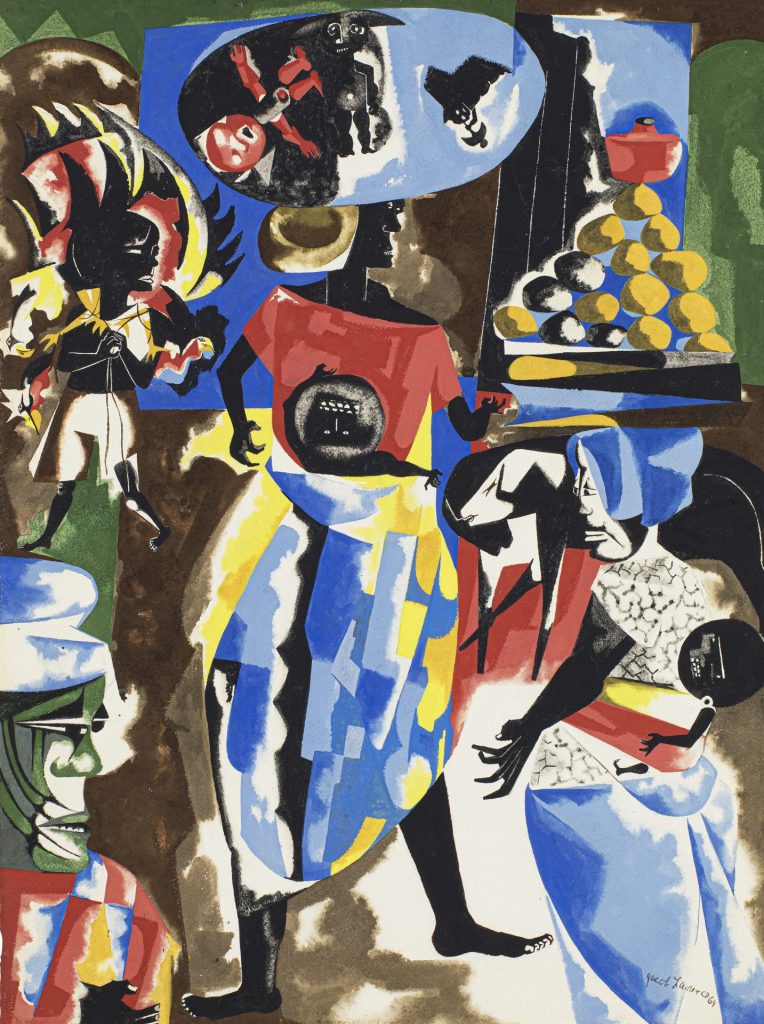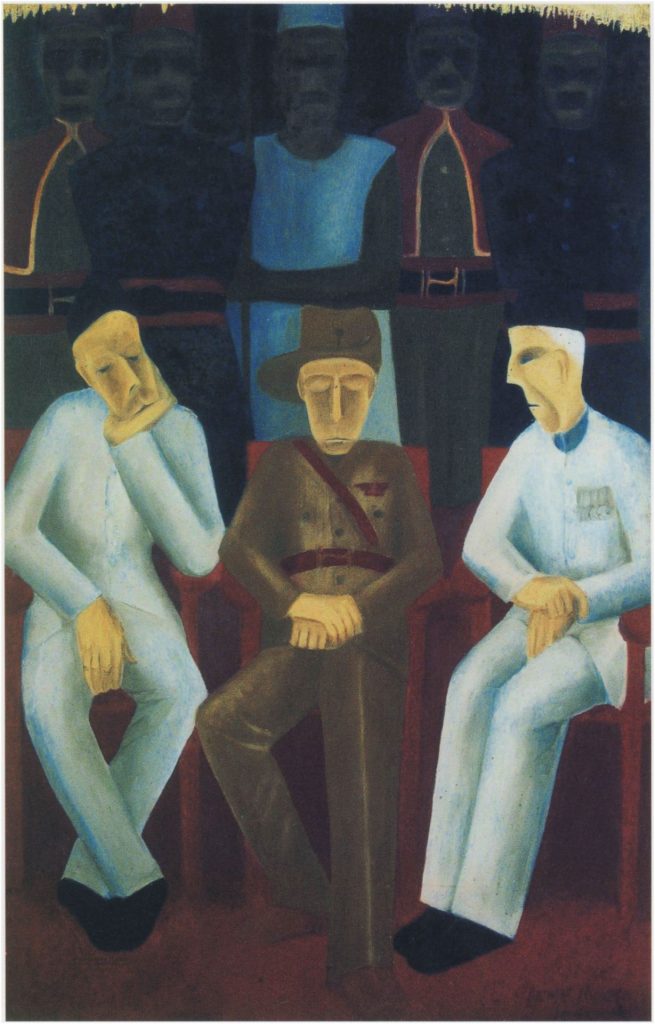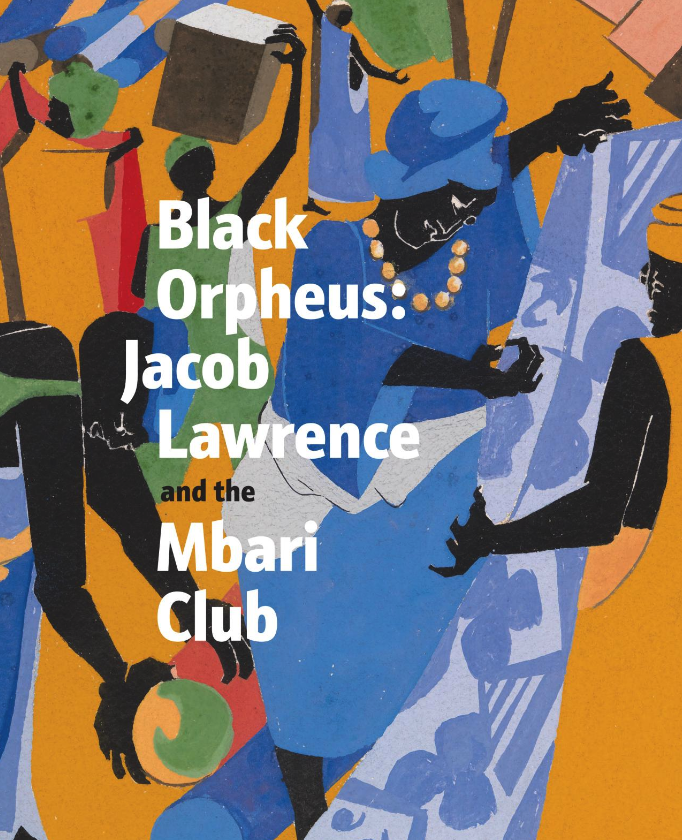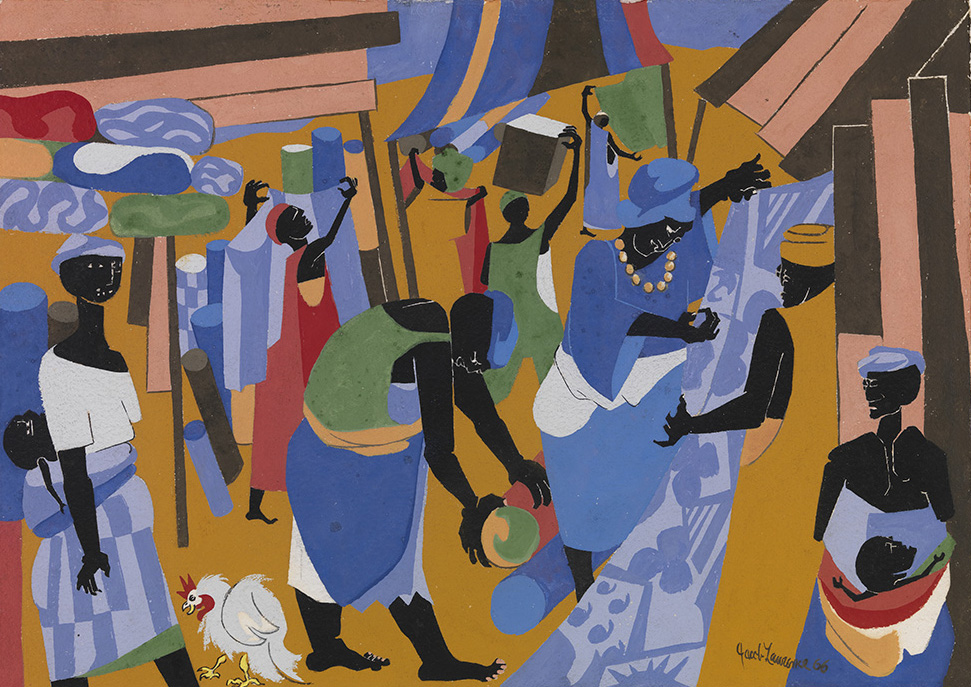
Black Orpheus: Jacob Lawrence and the Mbari Club explores the connection between African American artist Jacob Lawrence and his contemporaries based in West Africa through the Nigerian publication Black Orpheus. The exhibition features over 125 objects, including Lawrence’s little-known 1964–65 Nigeria series, works by the artists featured in Black Orpheus, archival images, videos, and letters.
The Mbari Artists & Writers Club was an artistic organization of Nigerian-based artists, writers, and dramatists promoting modern African and international artistic practice. The core of the exhibition centers on the Mbari arts and culture magazine Black Orpheus (1957–67). The publication was one of the main vehicles for circulating fictional and non-fictional writings by African and African Diaspora writers. It also included reviews of international visual artists from throughout the African continent, India, Brazil, Japan, Austria, U.S., and Germany. Mbari also had galleries in Lagos, Ibadan and Osogbo, Nigeria, presenting the work of many of these artists, including Jacob Lawrence, William H. Johnson, Ibrahim El-Salahi, Uche Okeke, Malangantana Ngwenya, Jacob Afolabi, Colette Oluwabamise Omogbai, Francis Newton Souza, Twins Seven-Seven, Wilson Tibério, Genaro de Carvalho, Agnaldo Manoel dos Santos, Susanne Wenger, Karl Schmidt-Rottluff, Demas Nwoko, and Avinash Chandra, among others.
Exhibition co-curators Kimberli Gant—the Chrysler Museum of Art’s former McKinnon Curator of Modern and Contemporary Art and now Curator of Modern and Contemporary Art at the Brooklyn Museum—and Ndubuisi Ezeluomba—NOMA’s former Françoise Billion Richardson Curator of African Art and now Curator of African Art at the Virginia Museum of Fine Arts—address how the featured artists grappled with representing their respective national and cultural identities while depicting visually striking works during the beginning of postcolonialism throughout the African continent and other parts of the world. The resulting objects were meant to both resonate with local communities and connect with broader Eurocentric notions of modernity.
Black Orpheus: Jacob Lawrence and the Mbari Club was made possible in part by major funding from National Endowment for the Humanities, The Andy Warhol Foundation for the Visual Arts, the Getty Foundation Paper Project, The Gladys Krieble Delmas Foundation, the National Endowment for the Arts, and the IFPDA Foundation. The Wyeth Foundation for American Art provided support for the exhibition catalogue.

Market Scene
1966
Jacob Lawrence
Gouache on paper
Chrysler Museum of Art, Museum purchase, 2018.22. © 2022 The Jacob and Gwendolyn Knight Lawrence Foundation, Seattle/Artists Rights Society (ARS), New York
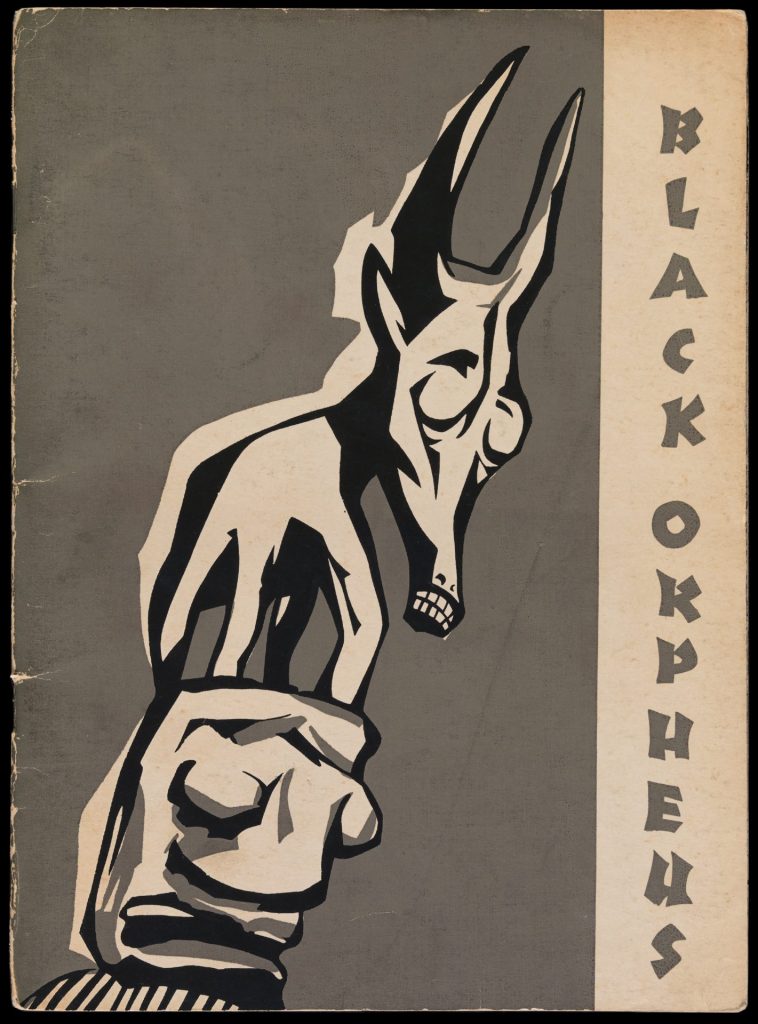
Cover of Black Orpheus Journal #2
1958
Jean Outland Chrysler Library, Chrysler Museum of Art, Norfolk, Va., T2022.9
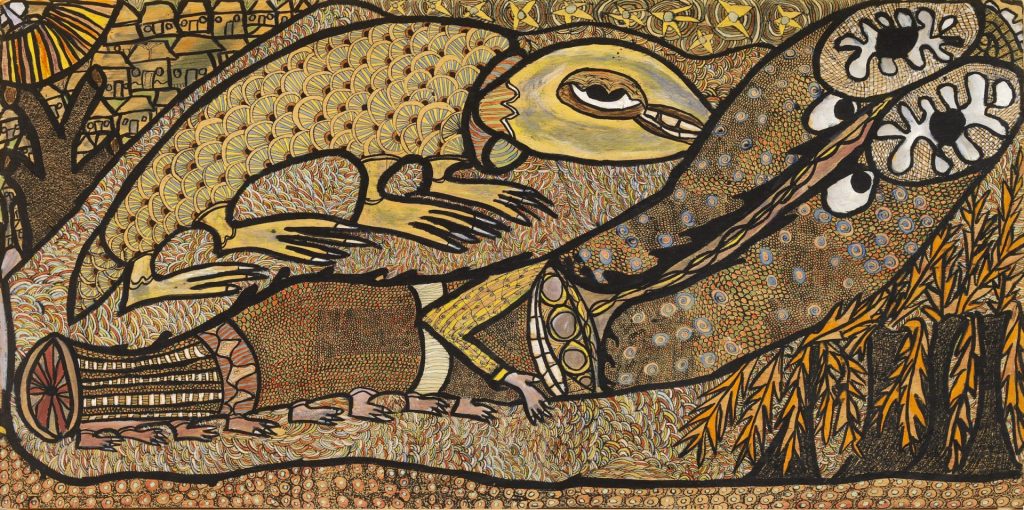
Sea Ghost 3
1968
Twins Seven-Seven
Ink on plywood.
National Museum of African Art, Smithsonian Institution, gift of Holly and David Ross, 2003-5-1. © 2022 Artists Rights Society (ARS), New York/VG Bild-Kunst, Bonn.
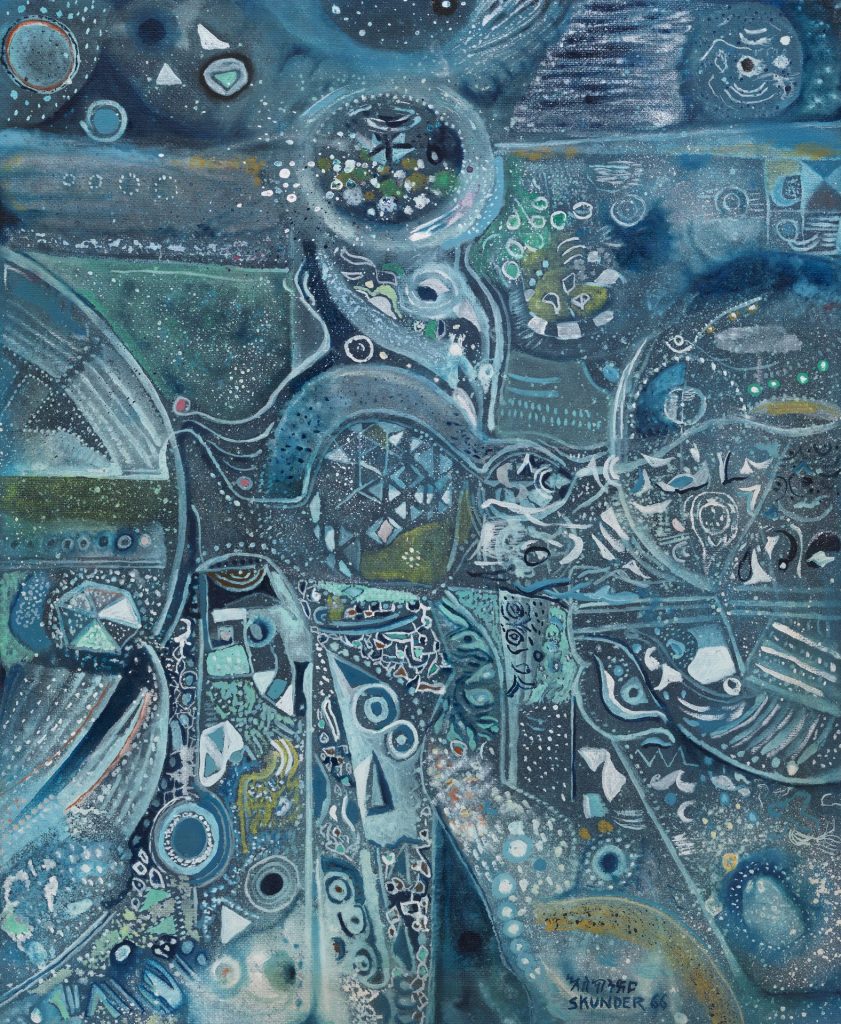
Untitled
1966
Alexander “Skunder” Boghossian
Oil on canvas
Chrysler Museum of Art, Museum purchase, 2020.32
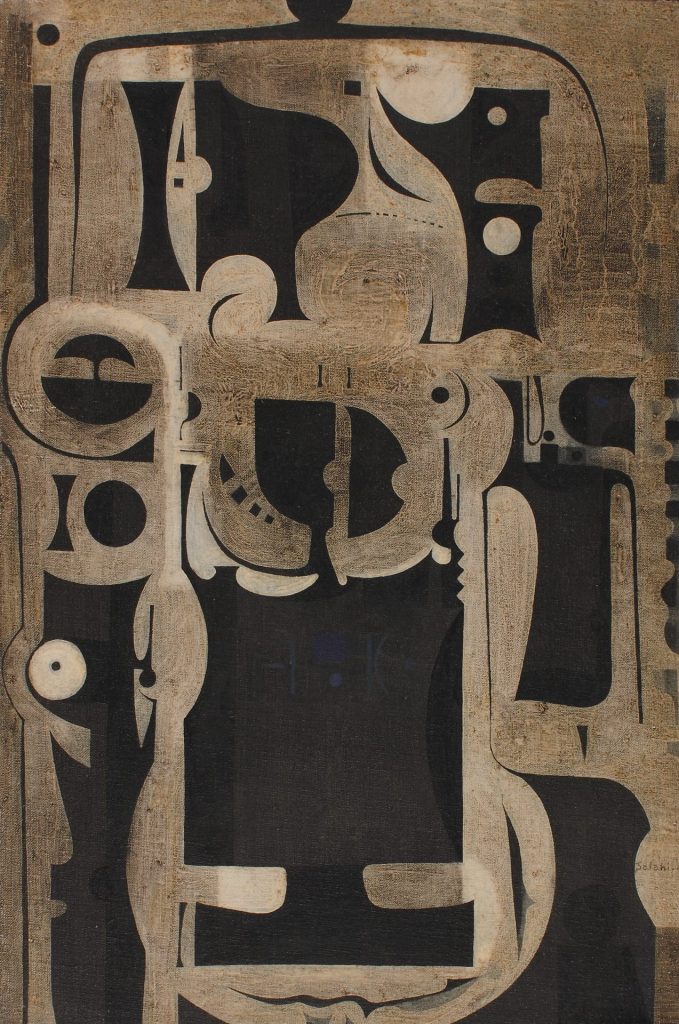
They Always Appear #4
1964–65
Ibrahim El Salahi
Oil on canvas
Newark Museum of Art, Purchase 2014 Contemporary Art Society of Great Britain Fund. © Ibrahim El-Salahi, courtesy Vigo Gallery. All rights reserved, ARS, NY 2022
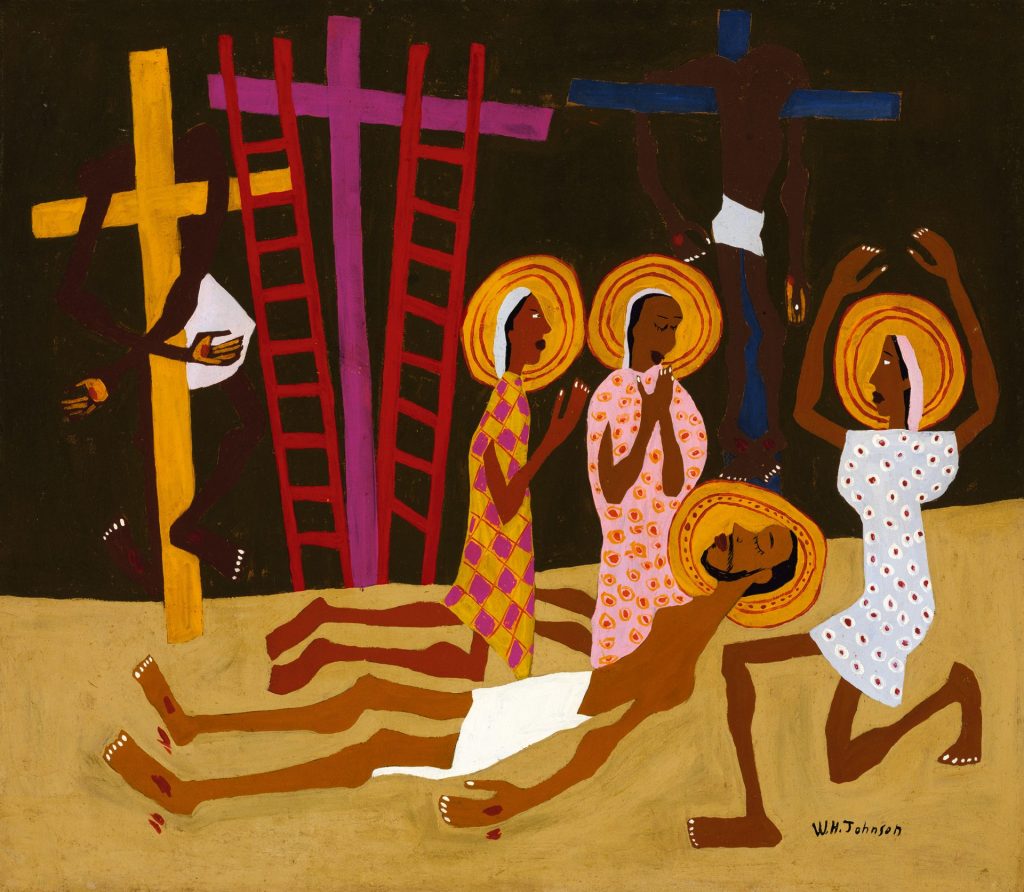
Lamentation
ca. 1944
William H. Johnson
Oil on fiberboard
Smithsonian American Art Museum, Gift of the Harmon Foundation
Catalogue
Purchase from the NOMA Museum Shop
The first book to feature Jacob Lawrence’s Nigeria series, this richly illustrated volume also highlights Africa’s place as a global center of modernist art and culture.
This revelatory book shines a light on the understudied but important influence of African Modernism on the work of Black American artist Jacob Lawrence (1917–2000). In 1965, a New York gallery displayed Lawrence’s Nigeria series: eight tempera paintings of Lagos and Ibadan marketplaces that were the culmination of an eight-month stay in Nigeria. Lawrence’s residency put him in touch with the Mbari Artists and Writers Club, an international consortium of artists and writers in post-independence Nigeria that published the arts journal Black Orpheus.
This volume and accompanying exhibition place the Nigeria series alongside issues of Black Orpheus and artwork created by Mbari Club artists, including Uche Okeke, Jacob Afolabi, Susanne Wenger, and Naoko Matsubara. Essayists explore the influence of Africa’s post-colonial movement on American modernists and developing African artists; the women of the Mbari group; and the importance of art publications in circulating knowledge globally.
Published by Yale University Press in association with the Chrysler Museum of Art and the New Orleans Museum of Art.
